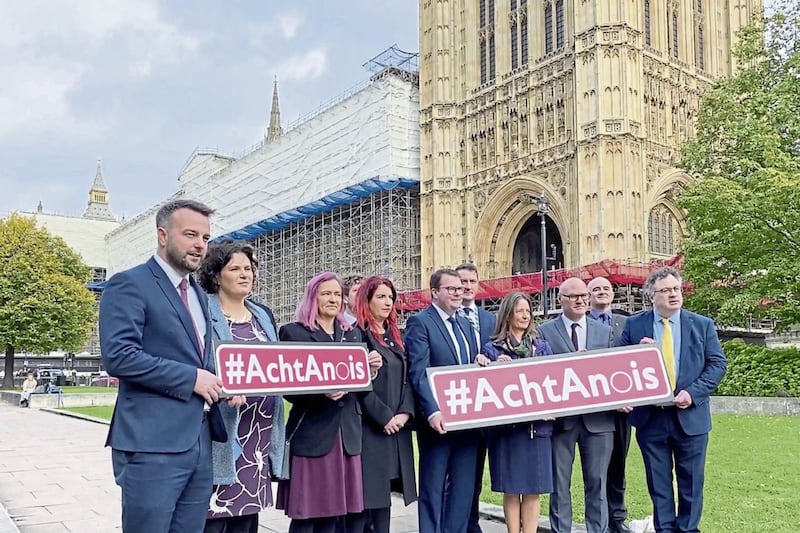For Irish language campaigners there have been many false dawns.
A strategy on the language was promised as part of the 2006 St Andrews Agreement.
In 2015, then culture minister Carál Ní Chuilín put forward a draft strategy but it was not adopted by the Stormont Executive.
In 2017, a court found that the executive had failed in its legal duty to adopt a language plan - a landmark ruling which many campaigners hoped in vain would lead to real change.
Irish language legislation was promised again in January last year as part of the New Decade New Approach agreement.
Yet there has been little to no progress.
Three of the north’s five biggest parties - Sinn Féin, the SDLP and the Alliance - yesterday backed a letter from Conradh na Gaelige calling on the executive to agree a timetable for the introduction of Irish language legislation.
The letter insisted that any law must be introduced in this assembly mandate - a move which DUP leader Edwin Poots seems reluctant to make.
In her last speech as first minister yesterday, Arlene Foster quite rightly pointed out that the issue of culture and identity in the north has been a “running sore” for decades.
“It is only by respecting each other’s identity that we will move forward,” she said.
It is in this spirit that Irish language legislation, which has already been delayed by the pandemic, should be introduced.
It should be pointed out that New Decade New Approach included a commitment to an Ulster Scots language, heritage and culture strategy as well as Irish.
Yet while language legislation is badly needed, rows over its introduction should not be used to collapse an executive which has only been running for 18 months.
Rev Dr Sahr Yambasu, newly-elected President of the Methodist Church in Ireland, yesterday warned that the north cannot afford “another period of political brinkmanship” which could jeopardise Stormont.
As the highly-infectious Delta variant of coronavirus continues to spread across the north, it is clear we have a long way to go before the pandemic ends.
We need ministers in post to make key decisions, not just about lockdown restrictions.
Our lengthy hospital waiting lists need urgent attention as well as outstanding legislation to protect victims of serious sexual crime.
Before any party considers a snap election, they must ask if they are acting in the electorate's best interests or if they are putting possible short-term gain before public service.







